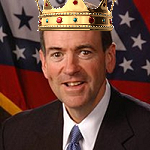Trump victory: Good or bad for liberals ?
Re: Trump victory: Good or bad for liberals ?
DON'T BE A TOUGH GUY. DON'T BE A FOOL! I WILL CALL YOU LATER.
-

Saz - Vice President
- Posts: 10171
- Joined: Mon Mar 17, 2014 9:37 am
- Location: CANADA
- Gender:

- Has thanked: 1189 times
- Been thanked: 1028 times
- Political Leaning: Democratic Socialist
Re: Trump victory: Good or bad for liberals ?
DON'T BE A TOUGH GUY. DON'T BE A FOOL! I WILL CALL YOU LATER.
-

Saz - Vice President
- Posts: 10171
- Joined: Mon Mar 17, 2014 9:37 am
- Location: CANADA
- Gender:

- Has thanked: 1189 times
- Been thanked: 1028 times
- Political Leaning: Democratic Socialist
- IndependentProfessor
- Congressman
- Posts: 703
- Joined: Thu Oct 08, 2015 1:03 pm
- Gender:

- Has thanked: 18 times
- Been thanked: 40 times
- Political Leaning: Rockefeller Republican
Re: Trump victory: Good or bad for liberals ?
And they are deregulations that occurred during a time of divided government.
go ahead. keep screaming "Shut The f**k Up " at me. it only makes my opinions Worse
-

Philly - Governor
- Posts: 9899
- Joined: Sat Feb 22, 2014 6:36 pm
- Gender:

- Has thanked: 975 times
- Been thanked: 1223 times
- Political Leaning: DEMOCRATIC SOCIALIST
- IndependentProfessor
- Congressman
- Posts: 703
- Joined: Thu Oct 08, 2015 1:03 pm
- Gender:

- Has thanked: 18 times
- Been thanked: 40 times
- Political Leaning: Rockefeller Republican
Re: Trump victory: Good or bad for liberals ?
To summarize, divided government can have a good, bad or neutral impact on the economy. Which impact largely depends upon context - the state of the economy in general, the specific composition of Congress, the pragmatism or idealism of the President, global markets, etc.
There is no real evidence that a divided government is always or mostly good for the economy. There are some correlations, but they are suspect for many reasons - one, they don't account for other correlations, and therefore do not establish causation. Two, they don't analyze the specific actions of a specific government, but instead simply note that the economy did this while the government was either divided or not. Three, they don't account for the outliers (ie when divided government passes sweeping legislation, or when unified government compromises). Four, they make no distinction between degrees of polarization - 1970s Dems and Reps would be absolutely and relatively less polarized than 2016 Dems and Reps.
As for legislative quality and quantity, it has been definitively shown that divided government decreases both.
That's about as fair of a summary I can make, Prof.
There is no real evidence that a divided government is always or mostly good for the economy. There are some correlations, but they are suspect for many reasons - one, they don't account for other correlations, and therefore do not establish causation. Two, they don't analyze the specific actions of a specific government, but instead simply note that the economy did this while the government was either divided or not. Three, they don't account for the outliers (ie when divided government passes sweeping legislation, or when unified government compromises). Four, they make no distinction between degrees of polarization - 1970s Dems and Reps would be absolutely and relatively less polarized than 2016 Dems and Reps.
As for legislative quality and quantity, it has been definitively shown that divided government decreases both.
That's about as fair of a summary I can make, Prof.
-

exploited - Vice President
- Posts: 23035
- Joined: Fri Sep 14, 2012 2:32 pm
- Location: Ontario, Canada
- Gender:

- Has thanked: 2562 times
- Been thanked: 1837 times
- IndependentProfessor
- Congressman
- Posts: 703
- Joined: Thu Oct 08, 2015 1:03 pm
- Gender:

- Has thanked: 18 times
- Been thanked: 40 times
- Political Leaning: Rockefeller Republican
Re: Trump victory: Good or bad for liberals ?
The hardest part of doing nothing is knowing when your done.
- spacemonkey
- Governor
- Posts: 5718
- Joined: Mon Aug 27, 2012 10:54 am
- Location: cyberspace
- Gender:

- Has thanked: 73 times
- Been thanked: 296 times
Who is online
Users browsing this forum: No registered users and 1 guest
